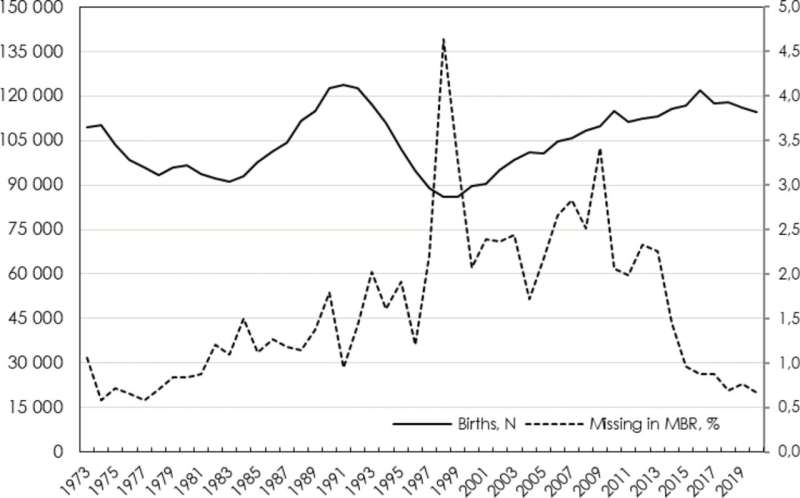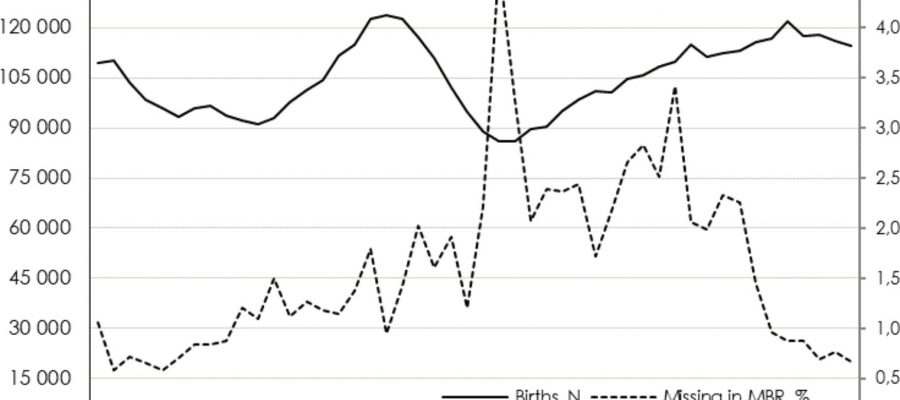
In a review paper published in the European Journal of Epidemiology, researchers from Karolinska Institutet and Lund University describe the content and quality of the Swedish Medical Birth Register (MBR), using original Medical Birth Register data, as well as Swedish-language and international publications based on the register. The researchers conclude that the register contains high-quality pregnancy-related information on more than 5 million births during five decades.
About 98% of all births in Sweden are recorded in The Medical Birth Register (MBR), which is one of Sweden’s national health care registers, established in 1973. Since 1982, the register is based on prospectively recorded information in standardized antenatal, obstetric, and neonatal records.
The register contains maternal data such as information on self-reported smoking and snuff use, self-reported height and measured weight, allowing calculation of body mass index, but also obstetric history and cohabitation status. Importantly the register also contains pregnancy and birth data on the pregnancy such as mode of delivery and pregnancy duration (gestational age).
“Since the register data are derived on original information from medical records, quality is high. The MBR includes practically all births in Sweden since 1973, and there are more than 100,000 births annually. This, together with the richness of variables, enables detailed studies of rare pregnancy outcomes,” says lead author Sven Cnattingius, professor in reproductive epidemiology at the Clinical Epidemiology Division, Karolinska Institutet.
But the Medical Birth Register also contain a large amount of data on the newborn, such as birth weight, birth length, head circumference, infant sex, Apgar scores, and infant diagnoses/procedures, including neonatal care.
“From my perspective as a pediatrician, the inclusion of data on both the mother and the newborn infant is crucial. And being able to link those data to other national health registers through the personal identity number. The research opportunities in the medical birth register are immense,” says corresponding author Professor Jonas F Ludvigsson, pediatrician at Örebro University Hospital, and professor at the Department of Medical Epidemiology and Biostatistics, Karolinska Institutet.
The review defines a large number of variables, and assesses their quality. Up until 2022, more than 1,000 scientific studies have been based on the Medical Birth Register.
“As noted in the paper’s title, the medical birth register spans 50 years. This allows for studies on the long-term effects of for instance preterm birth and small for gestational age, Ludvigsson continues. I really hope this register is around for another 50 years.”
More information:
Sven Cnattingius et al, The Swedish medical birth register during five decades: documentation of the content and quality of the register, European Journal of Epidemiology (2023). DOI: 10.1007/s10654-022-00947-5
Journal information:
European Journal of Epidemiology
Source: Read Full Article
